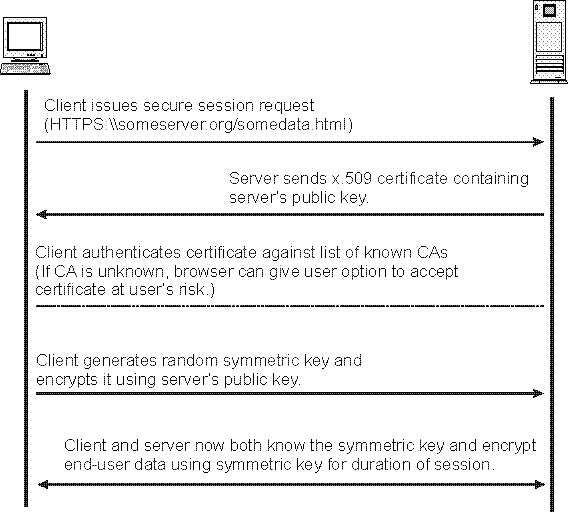Generate Public And Private Keys Using Rsa Algorithm In Java
Usage Guide - RSA Encryption and Decryption Online. In the first section of this tool, you can generate public or private keys. To do so, select the RSA key size among 515, 1024, 2048 and 4096 bit click on the button. RSA algorithm is an asymmetric cryptography algorithm which means, there should be two keys involve while communicating, i.e., public key and private key. There are simple steps to solve problems on the RSA Algorithm. Java program to encrypt and decrypt a given message using RSA algorithm. Open Command Prompt and compile & Run. RSA algorithm is used to changing message that no one can understand the communication between sender and receiver. Sender and Receiver have public and private key and they can only understand message. JAVA Program import java.math.BigInteger;. JAVA generate RSA Public and Private Key Pairs using bouncy castle Crypto APIs The following sample code generates RSA public and private keys and save them in separate files. You can pass the file names as input parameters and the program generates keys with 1024-bit size. RSA algorithm is an asymmetric cryptography algorithm which means, there should be two keys involve while communicating, i.e., public key and private key. There are simple steps to solve problems on the RSA Algorithm. Example-1: Step-1: Choose two prime number and Lets take.
- Generate Public And Private Keys Using Rsa Algorithm In Java Download
- Generate Public And Private Keys Using Rsa Algorithm In Java Code
- Generate Public And Private Keys Using Rsa Algorithm In Java Pdf
Research on using ssh-keygen or openssl to generate public/private keyswhich a Java application can use.
This assumes that the key files are serialized Java objects, not the ssh-keygen generated files.
References
Private RSA key uses PKCS8EncodedKeySpec [1]
/rsa-and-dsa-key-generation.html. Public RSA key uses X509EncodedKeySpec [1]
The files generated by ssh-keygen -t rsa -b 1024 need some parsingto remove newline characters as well as inline comments [2]. Furtherthe keys generated are 'bare' PKCS1 formatted whereas Java needsPKCS8 format [3]. You can tell a private key is in PKCS1 format because the commentin the file says '-----BEGIN RSA PRIVATE KEY-----'. For a PKCS8 format, the comment says'-----BEGIN PRIVATE KEY-----' without the RSS. So it looks like additional translation is needed tocreate files in PKCS#8 format [4]. Probably better to just use openssl [2, 5]:
References
Java Code Examples for
java.security.PrivateKey. http://www.javased.com/index.php?api=java.security.PrivateKeyParseRSAKeys.java https://gist.github.com/destan/b708d11bd4f403506d6d5bb5fe6a82c5
Load an RSA private key in Java (algid parse error, not a sequence). https://stackoverflow.com/questions/15344125/load-a-rsa-private-key-in-java-algid-parse-error-not-a-sequence/29827944
Why can't ssh-keygen export a public key in PEM PKCS8 format? https://crypto.stackexchange.com/questions/27913/why-can-ssh-keygen-export-a-public-key-in-pem-pkcs8-format
References
Using OpenSSL to encrypt messages and files on Linux. https://linuxconfig.org/using-openssl-to-encrypt-messages-and-files-on-linux
How to remove newline from output. https://stackoverflow.com/questions/35799684/how-to-remove-newline-from-output
In order to be able to create a digital signature, you need a private key. (Its corresponding public key will be needed in order to verify the authenticity of the signature.)
In some cases the key pair (private key and corresponding public key) are already available in files. In that case the program can import and use the private key for signing, as shown in Weaknesses and Alternatives.
In other cases the program needs to generate the key pair. A key pair is generated by using the KeyPairGenerator class.
In this example you will generate a public/private key pair for the Digital Signature Algorithm (DSA). You will generate keys with a 1024-bit length.
Generating a key pair requires several steps:
Create a Key Pair Generator
The first step is to get a key-pair generator object for generating keys for the DSA signature algorithm.
As with all engine classes, the way to get a KeyPairGenerator object for a particular type of algorithm is to call the getInstance static factory method on the KeyPairGenerator class. This method has two forms, both of which hava a String algorithm first argument; one form also has a String provider second argument.
A caller may thus optionally specify the name of a provider, which will guarantee that the implementation of the algorithm requested is from the named provider. The sample code of this lesson always specifies the default SUN provider built into the JDK.
Put the following statement after the

line in the file created in the previous step, Prepare Initial Program Structure:

Initialize the Key Pair Generator
The next step is to initialize the key pair generator. All key pair generators share the concepts of a keysize and a source of randomness. The KeyPairGenerator class has an initialize method that takes these two types of arguments.
Generate Public And Private Keys Using Rsa Algorithm In Java Download
The keysize for a DSA key generator is the key length (in bits), which you will set to 1024.
The source of randomness must be an instance of the SecureRandom class that provides a cryptographically strong random number generator (RNG). For more information about SecureRandom, see the SecureRandom API Specification and the Java Cryptography Architecture Reference Guide .
The following example requests an instance of SecureRandom that uses the SHA1PRNG algorithm, as provided by the built-in SUN provider. The example then passes this SecureRandom instance to the key-pair generator initialization method.
Generate Public And Private Keys Using Rsa Algorithm In Java Code
Some situations require strong random values, such as when creating high-value and long-lived secrets like RSA public and private keys. To help guide applications in selecting a suitable strong SecureRandom implementation, starting from JDK 8 Java distributions include a list of known strong SecureRandom implementations in the securerandom.strongAlgorithms property of the java.security.Security class. When you are creating such data, you should consider using SecureRandom.getInstanceStrong(), as it obtains an instance of the known strong algorithms.
Generate Public And Private Keys Using Rsa Algorithm In Java Pdf
Generate the Pair of Keys
The final step is to generate the key pair and to store the keys in PrivateKey and PublicKey objects.